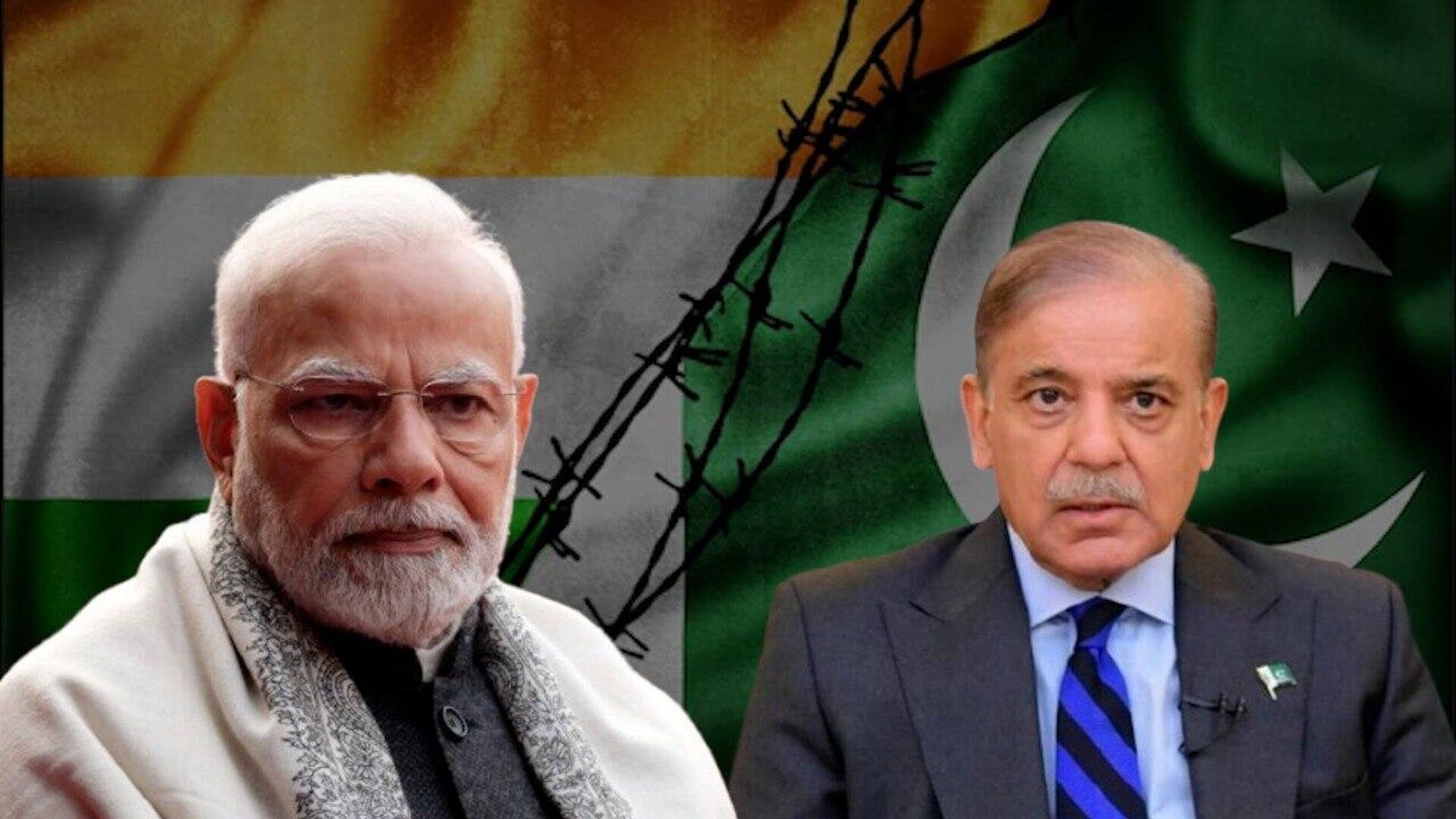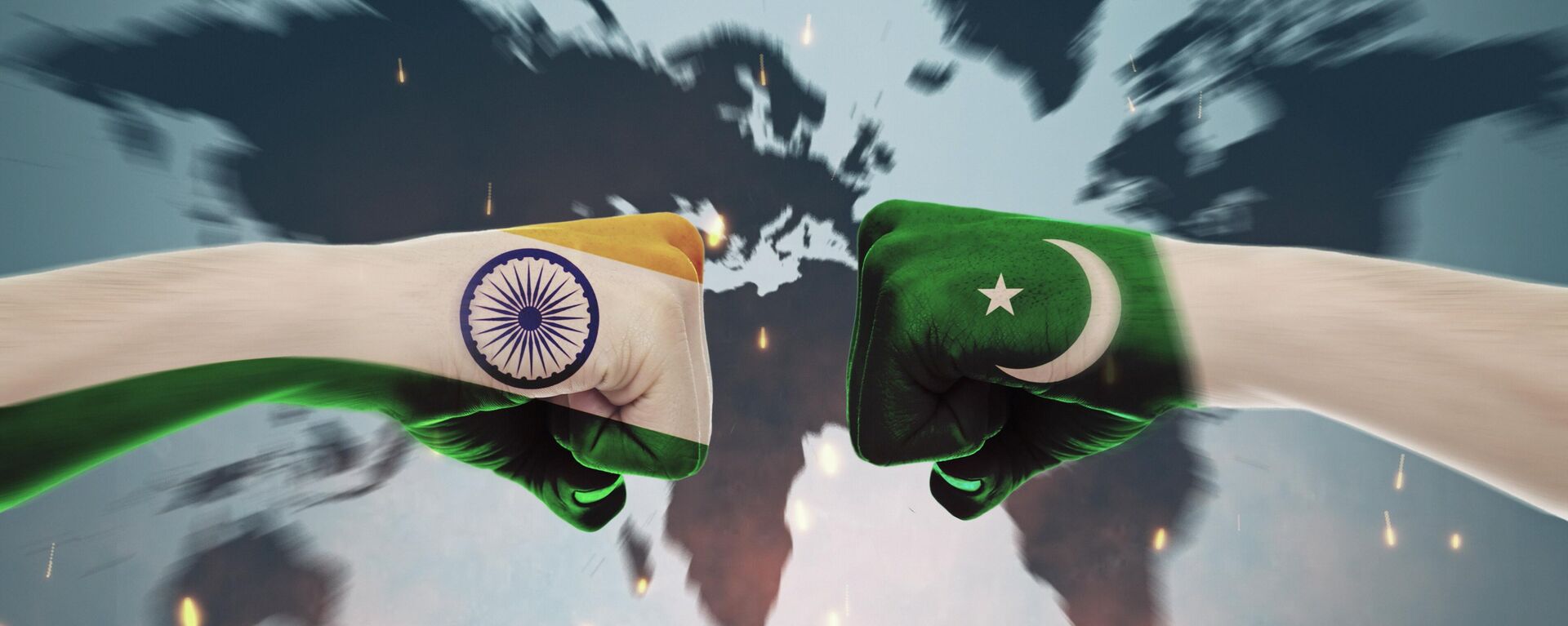https://sputniknews.in/20250501/india-vs-pakistan-who-is-winning-diplomatic-game-9055452.html
India vs Pakistan: Who is Winning Diplomatic Game?
India vs Pakistan: Who is Winning Diplomatic Game?
Sputnik India
Since the Pahalgam terrorist attack, India and Pakistan have been locked in a fierce diplomatic battle. 01.05.2025, Sputnik India
2025-05-01T20:48+0530
2025-05-01T20:48+0530
2025-05-02T17:13+0530
sputnik opinion
narendra modi
india
pakistan
new delhi
the united nations (un)
brics
shanghai cooperation organisation (sco)
islamabad
terrorism
https://cdn1.img.sputniknews.in/img/07e9/04/18/9020531_0:0:1280:720_1920x0_80_0_0_488dbf07f297ddcec472803cbeaed478.jpg
The international community feels India's pain regarding cross-border terrorism and has condemned the Pahalgam terrorist act in unequivocal terms.That shows New Delhi is winning the diplomatic war against Islamabad, two military pundits and a geopolitical scholar have told Sputnik India.Following the Pahalgam terrorist attack, India did not 'compete' diplomatically but has simply presented facts about the nature of the attack, the groups believed responsible, and Pakistan's historical record in harbouring such entities, said Anant Mishra, a Marie Curie Research Fellow at the International Centre for Policing and Security (ICPS) at the University of South Wales.The intelligence services must trace Musa's trajectory from the Pakistan Army's Special Service Group (SSG) to joining Lashkar-e-Taiba*, possibly to strengthen the terror outfit's Kashmir operations.But battle-hardened actors like Musa, who was trained as a paratrooper commando, is a skilled marksman and trained in the art of unconventional warfare and covert operations, the academic added.Musa's involvement in the attack suggests more than "passive tolerance" by the Pakistani security forces but possibly complicity or intelligence leaks, he argued.As a result, "There is no diplomatic contest, nor is it a 'fierce diplomatic game'. New Delhi is not playing a game — it is stating facts, presenting evidence, and exposing this pattern, which it has been aggressively since 26/11."De-escalation means very different things for both India and Pakistan, strategically and politically, the international relations specialist said.India's response to the attack has been measured yet firm, encompassing diplomatic, security and strategic dimensions, Mishra noted.New Delhi has been exercising great restraint since the Pahalgam attack. It has not responded with military strikes or rhetoric, despite widespread anger, and its response so far has been layered and deliberate."This suspension is not symbolic," he stressed, as Pakistan relies on the Indus River system for nearly 80 per cent of its agricultural needs."India, while still not violating international law, has indicated it will withhold hydrological data and reassess water allocations — signalling that continued support for terror proxies will carry strategic consequences," Mishra said.For New Delhi, de-escalation means dismantling terrorist infrastructure and seeking to hold Pakistan accountable for its support of cross-border terrorism, the commentator said.But the Pahalgam massacre shows that "de-escalation simply means urging both sides to simply 'calm down,' it instead motivates the sheer actors of perpetuating violence," he continued. "Real de-escalation begins with accountability, which Islamabad is far from taking."India has received support from international organisations like the BRICS and the SCO. Even in bilateral talks with the US and European nations, New Delhi has successfully articulated its position, says retired Major General RPS Bhadauria, who currently serves as the Additional Director General of the military think tank Centre for Land Warfare Studies (CLAWS) in New Delhi.Those attention-grabbing threats lead people unfamiliar with the region and the history of the two countries to "start believing that there may be a nuclear action."Both the US and Russia, which rarely see eye-to-eye, have backed India to use any means necessary to hunt down the terrorists.But they have also raised concerns that the situation could snowball into an all-out conflict, argued Major General BK Sharma, the Director of the United Service Institution of India (USI), the country's oldest defence think tank."There was not an iota of doubt that India is winning the diplomatic war," Sharma said, as no country could support such brutal killings of innocent civilians.*banned terrorist group
https://sputniknews.in/20250430/how-is-india-pakistan-information-warfare-unfolding-9049592.html
india
pakistan
new delhi
islamabad
Sputnik India
feedback.hindi@sputniknews.com
+74956456601
MIA „Rossiya Segodnya“
2025
Pawan Atri
https://cdn1.img.sputniknews.in/img/07e6/0c/13/139630_147:0:831:684_100x100_80_0_0_8fa2b25903e7787fe6a2698552c167df.png
Pawan Atri
https://cdn1.img.sputniknews.in/img/07e6/0c/13/139630_147:0:831:684_100x100_80_0_0_8fa2b25903e7787fe6a2698552c167df.png
News
en_IN
Sputnik India
feedback.hindi@sputniknews.com
+74956456601
MIA „Rossiya Segodnya“
Sputnik India
feedback.hindi@sputniknews.com
+74956456601
MIA „Rossiya Segodnya“
Pawan Atri
https://cdn1.img.sputniknews.in/img/07e6/0c/13/139630_147:0:831:684_100x100_80_0_0_8fa2b25903e7787fe6a2698552c167df.png
narendra modi, india, pakistan, new delhi, the united nations (un), brics, shanghai cooperation organisation (sco), islamabad, terrorism, cross-border terrorism, terrorist attack, pahalgam terror attack , terror outfits, daesh (isis/is/islamic state), lashkar-e-taiba (let)
narendra modi, india, pakistan, new delhi, the united nations (un), brics, shanghai cooperation organisation (sco), islamabad, terrorism, cross-border terrorism, terrorist attack, pahalgam terror attack , terror outfits, daesh (isis/is/islamic state), lashkar-e-taiba (let)
India vs Pakistan: Who is Winning Diplomatic Game?
20:48 01.05.2025 (Updated: 17:13 02.05.2025) Since the Pahalgam terrorist attack, India and Pakistan have been locked in a fierce diplomatic battle.
The international community feels India's pain regarding cross-border terrorism and has condemned the Pahalgam terrorist act in unequivocal terms.
That shows New Delhi is winning the diplomatic war against Islamabad, two military pundits and a geopolitical scholar have told Sputnik India.
Following the Pahalgam terrorist attack, India did not 'compete' diplomatically but has simply presented facts about the nature of the attack, the groups believed responsible, and Pakistan's historical record in harbouring such entities, said Anant Mishra, a Marie Curie Research Fellow at the International Centre for Policing and Security (ICPS) at the University of South Wales.
"This appears more conclusively with the identification of Hashim Musa—one of the four terrorists involved in the April 22 Pahalgam attack — as a former regular of the Pakistan Army's Para Forces," Mishra highlighted.
The intelligence services must trace Musa's trajectory from the Pakistan Army's Special Service Group (SSG) to joining Lashkar-e-Taiba*, possibly to strengthen the terror outfit's Kashmir operations.
But battle-hardened actors like Musa, who was trained as a paratrooper commando, is a skilled marksman and trained in the art of unconventional warfare and covert operations, the academic added.
"Individuals with this background are typically proficient in handling sophisticated weapons, engaging in close-quarter combat, and surviving in hostile terrain with minimal support," Mishra noted. "These skills are not found among ordinary terrorists—they are cultivated through rigorous military training."
Musa's involvement in the attack suggests more than "passive tolerance" by the Pakistani security forces but possibly complicity or intelligence leaks, he argued.
"This is not mere infiltration by rogue actors; it signals a dangerous institutional leakage of military expertise into terrorist networks, blurring the line between state and non-state actors," Mishra charged.
As a result, "There is no diplomatic contest, nor is it a 'fierce diplomatic game'. New Delhi is not playing a game — it is stating facts, presenting evidence, and exposing this pattern, which it has been aggressively since 26/11."
De-escalation means very different things for both India and Pakistan,
strategically and politically, the international relations specialist said.
India's response to the attack has been measured yet firm, encompassing diplomatic, security and strategic dimensions, Mishra noted.
New Delhi has been exercising great restraint since the Pahalgam attack. It has not responded with military strikes or rhetoric, despite widespread anger, and its response so far has been layered and deliberate.
"It has ramped up counterterror operations in Kashmir, diplomatically briefed global partners, presented intelligence evidence, and most notably, suspended the Indus Waters Treaty — a 1960 agreement that has survived all wars, crises, and decades of animosity," Mishra said.
"This suspension is not symbolic," he stressed, as Pakistan relies on the Indus River system for nearly 80 per cent of its agricultural needs.
"India, while still not violating international law, has indicated it will withhold hydrological data and reassess water allocations — signalling that continued support for terror proxies will carry strategic consequences," Mishra said.
For New Delhi, de-escalation means dismantling terrorist infrastructure and seeking to hold Pakistan
accountable for its support of cross-border terrorism, the commentator said.
"The situation becomes even more damning in light of Defence Minister Khawaja Asif's recent admission that Pakistan had, in the past, done the 'dirty work' for the West by supporting and training terrorist groups—a 'mistake' for which Pakistan, he claimed, is now suffering," Mishra charged.
But the Pahalgam massacre shows that "de-escalation simply means urging both sides to simply 'calm down,' it instead motivates the sheer actors of perpetuating violence," he continued. "Real de-escalation begins with accountability, which Islamabad is far from taking."
India has received support from international organisations like the BRICS and the SCO. Even in bilateral talks with the US and European nations, New Delhi has successfully articulated its position, says retired Major General RPS Bhadauria, who currently serves as the Additional Director General of the military think tank Centre for Land Warfare Studies (CLAWS) in New Delhi.
"But what is concerning the global community is the possibility of a full-scale war between the two states," Bhadauria said. "That is where Pakistan has been able to advance its narrative, where they have repeatedly threatened the use of tactical nuclear weapons against India."
Those attention-grabbing threats lead people unfamiliar with the region and the history of the two countries to "start believing that there may be a nuclear action."
Both the US and Russia, which rarely see eye-to-eye, have backed India to use any means necessary to hunt down the terrorists.
But they have also raised concerns that the situation could snowball into an all-out conflict, argued Major General BK Sharma, the Director of the United Service Institution of India (USI), the country's oldest defence think tank.
"There was not an iota of doubt that India is winning the diplomatic war," Sharma said, as no country could support such brutal killings of innocent civilians.



